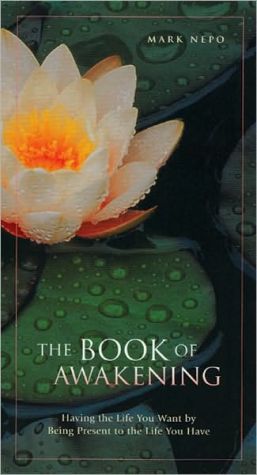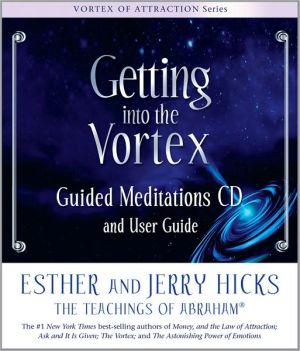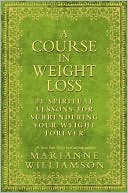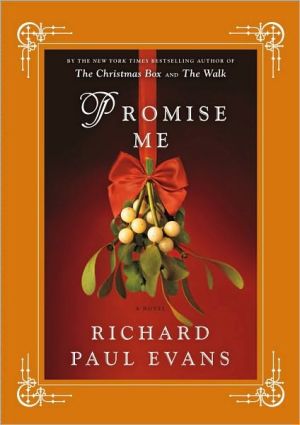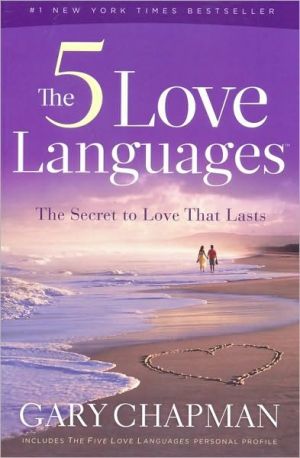The Impossibility of Religious Freedom
The Constitution may guarantee it. But religious freedom in America is, in fact, impossible. So argues this timely and iconoclastic work by law and religion scholar Winnifred Sullivan. Sullivan uses as the backdrop for the book the trial of Warner vs. Boca Raton, a recent case concerning the laws that protect the free exercise of religion in America. The trial, for which the author served as an expert witness, concerned regulations banning certain memorials from a multiconfessional...
Search in google:
"This is a remarkably fine work that discusses the way religion is perceived and dealt with in the United States. The subject is of great moment not only in America but also in the world at large, and Sullivan has treated it with considerable analytical skill and ethnographic detail. The result is a powerful and convincing argument."--Talal Asad, City University of New York Graduate Center"Provocative. Engaging. Valuable. Sullivan has created a kind of analytical triptych that captures some of the most important features of religions and law in the United States. It is a finely crafted portrait of an incredibly suggestive trial, a meditation on the political/legal status of folk religions in the United States, and a theoretical intervention into contemporary studies of religion jurisprudence."--Jason Bivins, North Carolina State University."The Impossibility of Religious Freedom is an astonishing book. Winnifred Sullivan once again demonstrates her flair for extracting a big lesson from a seemingly small event--in this book, a controversy over the allowable style of grave markers in a public cemetery in Boca Raton, Florida. To the town, the issue was the ease of mowing the cemetery and making it look tidy; for the survivors of the dead buried in the cemetery the issue was the appropriate expression of religious faith. This case looks like a simple church-state controversy, but Sullivan (an expert witness in the case) deftly explains why the federal court and the First Amendment really cannot cope with the issues involved. Separating church and state requires defining what religion is. The devil here is in the definition. Sullivan offers an important challenge to the easy assumptions to the current propensity of federal courts to accommodate religion. What is religion anyway? Read this fascinating story to see how challenging that question is."--Stanley N. Katz, Princeton University"Sullivan's exploration of unofficial religion is elegant, moving, uncompromising, and profoundly important. By examining religion literally from the ground up, it challenges all of the familiar pieties about religious liberty in America."--Philip Hamburger, author of Separation of Church and State Christopher Caldwell - Financial Times A smart-and in the present circumstances, sobering-little book.
The Impossibility of Religious Freedom\ \ By Winnifred Fallers Sullivan \ Princeton University Press\ Copyright © 2005 Princeton University Press\ All right reserved.\ \ \ \ Introduction\ This book is about the impossibility of religious freedom. Many laws, constitutions, and international treaties today grant legally enforceable rights to those whose religious freedom is infringed. Stories of the conflict between the demands of religion and the demands of law are daily news items all over the world, and take a familiar patterned form. Schoolgirls in France seek permission to wear the hijab to school. Sikhs in Britain seek exemption from motorcycle helmet laws. Muslim women seek civil divorces in India on the same ground as their Hindu and Christian neighbors. The Jehovah's Witnesses seek the right to be a recognized religious organization in Russia and to be exempt from patriotic exercises in Greece. Native Americans seek repatriation of religious items in the cases of U.S. museums. In each of these cases a court or a legislature or an administrative official must make a determination as to whether the religious practice in question is legally religious. In other words, in order to enforce laws guaranteeing religious freedom you must first have religion. \ The impossibility of religious freedom is not obvious, nor is the advocacy of such a position popular. A commitment to religious freedom is a taken-for-granted part of modern political identity in much of the world. Certainly this is so in the United States. Evenmost of those whose own personal stance is fiercely secular would include the right to religious freedom among those rights fundamental to a free democratic society. Indeed, Americans who may be able to agree on little else agree that religious freedom is one of the shining achievements of the United States, one that they are often anxious to export around the world. Nowhere, as Americans understand it, is religion so strong and so free. Not in Europe, which is believed to be pervasively and irredeemably atheistic, and where new religious movements are persecuted. Not in the Muslim world, where it is believed that adherence to Islam is enforced by authoritarian regimes and non-Muslims are discriminated against. Not in China, where it is believed that all religion is suspect. But there is a very real sense in which religious freedom is turning out to be impossible to realize, even in the United States. Drawing a line around what counts as religion and what does not is not as easy as periodically recommitting ourselves politically to religious freedom. Defining religion is very difficult, particularly at the beginning of the twenty-first century. Who is to say what is the authentic way for an American to be Christian or Jewish or Muslim or Inuit or Daoist or ...?\ This book tells two stories. First, it tells the story of how a motley group of ordinary Americans buried their dead in one cemetery in a small Florida city in the 1980s and 1990s, in defiance of local regulation, and then challenged the federal courts to enforce their right to the free exercise of their religion. Second, in light of the sometimes heroic effort of this group of ordinary American Protestants, Catholics, and Jews to explain what they did and why they did it to a group of ordinary American lawyers and judges and city officials, it tells the story of the impossibility of religious freedom today. The story of the trial itself is a small but moving local tale of a dispute that is now in its second decade. The implications of these local events are, however, arguably of wider significance.\ Warner v. Boca Raton (hereinafter the Warner case) was brought on behalf of a group of Florida residents who sought to prevent the forced removal of the numerous statues, plantings, crosses, Stars of David, and other individually crafted installations that, with the tacit permission of city officials, they had placed on the individual graves of their deceased relatives over the course of ten to fifteen years (see photographs between pp. 31 and 32). The suit sought a statutory and constitutional free-exercise-of-religion exemption from local cemetery regulations that limit the size and placement of memorials to small flat metal plaques, flush with the ground, giving only names and dates, and that can be easily mowed over. The principal issue at trial was whether the nonconforming memorial arrangements assembled by plaintiffs were an "exercise of religion," and therefore protected by the relevant statutes and constitutional provisions.\ The burial practices of the Warner plaintiffs belong to a grouping of religious beliefs and practices that one might call "lived religion," or "folk religion," that is, religion that takes place beneath the radar of religious officials and institutions. These practices, as with the familiar impromptu memorials constructed at the side of the road at the site of automobile accidents or at places of national tragedy such as that of the Oklahoma City bombing, reflect U.S. religious diversity, immigrant piety, political idealism, and a do-it-yourself style of religious ritual and iconography. This kind of religion is, for the most part, local and family-centered-but it is also linked in important ways to international and transnational religious communities and traditions.\ The lived religion of the Warner plaintiffs, as represented by the Boca Raton cemetery memorials, will be seen in the context of this trial as resistant to, and yet shaped in fundamental ways by the larger U.S. religious and legal history and landscape of which they are a part. But the religious practices described in this book and the conditions set by the legal context in which they find themselves are not exclusive to the U.S. context; with some local shading, they are common throughout the world. We live increasingly in a world of diaspora religious communities in which all religions are everywhere, in which all religions everywhere are governed by secular legal regimes, and in which all religions everywhere are being reinvented by their adherents to suit new circumstances. The Warner trial provides a case study for how and whether, given these conditions, law anywhere today can do what it is being asked to do: guarantee freedom of religion. Courts need some way of deciding what counts as religion if they are to enforce these laws. Is it possible to do this without setting up a legal hierarchy of religious orthodoxy? And who is legally and constitutionally qualified to make such judgments? Can "lived religion" ever be protected by laws guaranteeing religious freedom?\ Religion and law today speak in languages largely opaque to each other. When they intersect, whether in the work of academics or in the public square, it is usually in one of several familiar ways: in debates concerning certain issues of public policy-such as abortion, homosexuality, cloning, and euthanasia-or in the high-profile stories of the asserted denial of religious freedom mentioned above, such as prohibitions against Islamic veiling in France and Turkey, or of government funding of faith-based initiatives in the United States. These debates and these stories, for the most part, focus on the political questions and assume an unproblematic understanding of secular law, its history, and how it works today. They assume that, given the political will, laws-and courts-can do the work of enforcing the rights of religion. Less attention is given to how and whether law affects religion in these cases-to the actual encounter in courtrooms today between the religious lives of ordinary people and secular legal regimes. How can courts fairly assess evidence about religious practice? How can courts determine what counts as religious for the many laws all over the world that give persons whose actions are religiously motivated special privileges in law? This book is, then, on the smallest scale, about what counts as religion, legally, in Boca Raton, Florida, at the beginning of the twenty-first century. The book will consider the Warner case itself in some detail, but I will first put the case, and my own involvement in it, in a somewhat larger legal context.\ On the fifth and final day of the trial, in March 1999, just before giving his ruling from the bench, the Honorable Kenneth L. Ryskamp, U.S. district judge for the Southern District of Florida, announced: "I must admit that I enjoyed the four days immensely. I mean it's not very often where you can spent [sic] four days in court and talk theology all day. And I happen to enjoy that. And I thought it was interesting. It's an experience unlike anything I've had in 13 years on the bench." It should come as a surprise-to Americans at least-that a federal judge would describe a four-day trial as "talking theology all day." "Talking theology," we might think, is something that properly happens in churches and seminaries, or-at the very least-among private citizens. It is certainly not something that a federal judge should be doing while on the bench. It is not something that the government should be doing at all-if, by "talking theology," we mean talking about God. Characterizing all Americans is certainly almost as difficult as defining religion; but American attitudes toward religion are the product of a distinctive history, and Americans, on the whole, tend to be quite fastidious about the line between religion and government. Europeans, while often more secular in their personal orientations, are much more used to living with a lingering religious "establishment" of sorts and consequently less squeamish about public displays of religion and public involvement of religion in the life of the community and governmental involvement in the operations of religious communities. Religious freedom is often understood in Europe not to be incompatible with public funding of religion, for example. Some Americans might be more tolerant of generalized religious references and more comfortable with ceremonial religiosity than others; but most would recoil at the idea that a federal judge should be deciding in a federal court, for the purposes of secular law, what does and what does not count as real religion-what counts as what we might call "legal" religion. When Judge Ryskamp speaks of "talking theology" he is referring to his efforts to determine exactly what counts as religion for the purposes of law.\ The Warner case does not seem at first blush to have the marks usually associated with important legal cases in this country. It is not yet a Supreme Court case. It is not regarded as a landmark case in the legal literature. It seems now unlikely to be widely cited or discussed in legal circles. Furthermore, protection of the practices at issue in this case were not necessary for the survival, or even central to the identity, of a religious community, as was the case in many of the well-known American judicial decisions about religion: cases concerning Jehovah's Witnesses proselytizing, Mormon polygamy, Amish educational practices, or Native American sacred lands, to mention just a few. The practices for which protection was sought in the Warner case are more modest and more typically mainstream American. The Warner plaintiffs are not members of a religious elite. They are ordinary Americans attending to the most critical events of their lives-the deaths of their children, spouses, and parents. They are ordinary Americans seeking to create a place for mourning within the spaces set out by city, state, and federal laws, and by the cemetery industry. But if the religious activities at these graves are seen as unimportant and as not deserving of protection, legally speaking, then statutes guaranteeing religious freedom may be accomplishing just the reverse of their stated intent. These laws may be harming rather than fostering freedom of religion. In the important area of defining legal religion and legally protecting religious freedom, the Warner case provides, I believe, a valuable example.\ Those "talking theology" in federal court with Judge Ryskamp in this trial in March 1999 included the plaintiffs (relatives of those whose remains were buried in the cemetery), city officials and managers of the cemetery, a financial analyst, two experts on the cemetery industry, five experts on religion, the lawyers, and the judge. I was the third of the three religion experts hired by the plaintiffs' lawyers. The other two expert witnesses for the plaintiffs were a priest and a rabbi, both also academics. The City hired two religion scholars as experts. The testimony of all of those testifying at this trial was often at cross-purposes. As with many religion cases in the American courts, to read the testimony and the legal arguments in the Warner v. Boca Raton case with the eye of a scholar of religion is to wade into a murky mixture of half-remembered childhood teachings (whether at the knee of one's grandmother or in formal religious instruction), ideas promoted in the popular literature of spirituality, fragments of Supreme Court opinions, the demands of the politics of identity, academic theories and opinions, and genuine, if often uninformed, fascination and concern. Indeed, one could say that the process of the trial itself, not just the ultimate decision, was somehow at times indecent, however unintentionally, in its ignorance about religion and in the resulting harassment of the plaintiffs. Certainly by bringing suit the plaintiffs consented, in some sense, to intrusive questioning-but did they consent to ill-informed and sometimes humiliating badgering about their religious beliefs and practices? And to what purpose?\ The Warner case, in its very modesty, nicely illustrates the modern legal conditioning and predicament of religion. And it does so in the context of the peculiarly American conjunction between a strict separationist political ideology and a widespread evangelical style of religiosity, a conjunction further distinguished by the very American sense that everyone is an expert when it comes to religion. The United States is, as many have observed, at once a profoundly secular and a profoundly religious society. "Separation of church and state" means that there is no established authority. A reformed evangelical piety means that each person is enthusiastically open to new religious experience, his or her own and everyone else's. Together, these conditions produce a religious field both diverse and uniform. Throughout the Warner trial Judge Ryskamp inhabited this American double consciousness, at once separationist and evangelical, uneasily, I think, not sure how to resolve it. He confidently asserted the entire and complete right of every American to believe as she or he chooses while at the same time thoroughly enjoying arbitrating among competing views. This practice of his, his arbitration among views, was what he called "talking theology." Biblically literate in a lay sense, Ryskamp felt no hesitation in openly preferring his own reading of the Hebrew Bible to that of the rabbi. He also felt no compunction about preferring his own version of church history to that of the church historian. Religion appeared to be judged in his courtroom according to the fabled "I know it when I see it" standard.\ Judge Ryskamp is like many Americans, I think, both in his obvious pleasure in "talking theology" and in his self-confident evaluation of the available evidence about religion. He was interested in religion and he was entirely democratic, if often uninformed, when debating authoritative sources. Religious authority was located for him in the individual, not in the religious community. Summarizing his reaction to the plaintiffs' testimony in the Warner case, he revealed his own very American brand of broadmindedness when it comes to religion:\ I would say at the outset, of all the plaintiffs who testified and the depositions that I've read, I believe that all of them have sincere religious beliefs. This does not require any testimony of orthodoxy, because orthodoxy is not an issue In listening to the testimony, the views expressed weren't necessarily my views but I recognize them as all valid religious beliefs that are entitled to protection under the law. I'm sure that if I express my religious views some people would say that's very weird and that's very strange, you know, I can't agree with that. That's unorthodox. And that's what makes up religion, is that we all have the right in this country to have whatever religious views we choose to have. So I would say as a blanket matter at the beginning that I recognize all of these views that have been expressed as sincerely held religious views.\ (Continues...)\ \ \ \ \ Excerpted from The Impossibility of Religious Freedom by Winnifred Fallers Sullivan Copyright © 2005 by Princeton University Press. Excerpted by permission.\ All rights reserved. No part of this excerpt may be reproduced or reprinted without permission in writing from the publisher.\ Excerpts are provided by Dial-A-Book Inc. solely for the personal use of visitors to this web site. \ \
Acknowledgments ix Note on Sources xi List of Illustrations xiii Introduction 1 Chapter One: Outlaw Religion 13 Chapter Two: The Trial: The Plaintiffs 32 Chapter Three: The Trial: The Other Witnesses 54 Chapter Four: Legal Religion 89 Chapter Five: Free Religion 138 Appendices Appendix A: Relevant Law: Excerpts from U.S. and Florida Constitutions, RFRA, FRFRA, and Rules and Regulations of Boca Raton Cemetery 161 Appendix B: Expert Reports of Broyde, Katz, McGuckin, Pals, and Sullivan 179 Appendix C: Ryskamp Opinion 219 Notes 245 Bibliography 269 Index 281
\ Journal of Law and Religion\ Sullivan's examination of the judicial process is only one important aspect her book. The most important contribution is her discussion of the problems of how law defines religion and through its definition impedes religious liberty.\ — Bryan K. Fair\ \ \ \ \ Journal of Law & ReligionSullivan's examination of the judicial process is only one important aspect her book. The most important contribution is her discussion of the problems of how law defines religion and through its definition impedes religious liberty.\ — Bryan K. Fair\ \ \ Financial TimesA smart-and in the present circumstances, sobering-little book.\ \ \ \ \ American ScholarSullivan's book has the great virtue of placing abstract legal dilemmas in the concrete realities of everyday life.\ \ \ \ \ International Review of Modern SociologyScholars or lay-people intrigued by the status of religion in contemporary developed nations will find Sullivan's study very useful.\ \ \ \ \ Journal of Law and ReligionSullivan's examination of the judicial process is only one important aspect her book. The most important contribution is her discussion of the problems of how law defines religion and through its definition impedes religious liberty.\ \ \ \ \ Financial TimesA smart-and in the present circumstances, sobering-little book.\ — Christopher Caldwell\ \ \ \ \ American ScholarSullivan's book has the great virtue of placing abstract legal dilemmas in the concrete realities of everyday life.\ — R. Laurence Moore\ \ \ \ \ International Review of Modern SociologyScholars or lay-people intrigued by the status of religion in contemporary developed nations will find Sullivan's study very useful.\ — John M. McTaggart\ \ \ \ \ Journal of Law and ReligionSullivan's examination of the judicial process is only one important aspect her book. The most important contribution is her discussion of the problems of how law defines religion and through its definition impedes religious liberty.\ — Bryan K. Fair\ \ \ \ \ Library JournalDrawing on her expertise in law and religion, Sullivan (Divinity Sch., Univ. of Chicago) here argues that religious freedom in America is impossible. Citing Warren v. Boca Raton as well as her experiences as an expert witness in that trial, Sullivan portrays the unsuccessful court battle of various religious families in the city of Boca Raton, FL. She illustrates how differing faiths lost their battle to preserve the tradition of placing religious tributes on public grave sites. Her observation that many freedoms are limited by the Constitution-including religious freedom-is central to her argument. While Sullivan acknowledges that the Constitution provides guidelines that govern religious freedom, she finds them vague and of little use in an actual court case. The solution to the problem, she ultimately asserts, lies in laws that place religious freedoms under the umbrella of equality. Some may find Sullivan's use of legal language dry at times. However, she does succeed in arguing that religious freedoms are not as free as one might think. Recommended for academic collections that emphasize religion and law and larger public libraries.-Brad S. Matthies, Butler Univ. Lib., Indianapolis Copyright 2005 Reed Business Information.\ \

